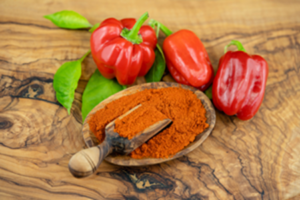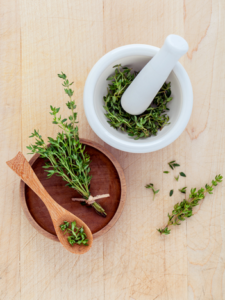Black pepper isn’t just a staple in kitchens around the world—it’s a powerhouse of potential health benefits that can enhance your meals and your well-being. Often referred to as the “king of spices,” black pepper has been valued for centuries, both for its sharp, spicy flavor and its medicinal properties.
Derived from the dried peppercorns of the Piper nigrum vine, black pepper has earned its place in history. It’s a significant part of Ayurvedic medicine, dating back thousands of years, thanks to its rich content of beneficial plant compounds. But what makes this spice so special beyond its culinary uses?
The Health Benefits of Black Pepper
Black pepper has several notable health benefits, thanks to its potent antioxidant and anti-inflammatory properties. Here are some of the ways it can boost your health:
- Antioxidant Power: Black pepper acts as a powerful antioxidant, helping to combat oxidative stress and prevent cell damage.
- Anti-Inflammatory Properties: It may help reduce inflammation in the body, which could be beneficial for conditions like arthritis.
- Blood Sugar Regulation: Some studies suggest black pepper could aid in regulating blood sugar levels, which is especially helpful for those managing diabetes.
- Brain Health: Black pepper has potential cognitive benefits, with compounds that may help improve brain function and memory.
How Much Black Pepper Is Safe to Consume?
There’s no strict daily limit for black pepper, and the amount commonly used in cooking is generally safe. However, like with anything, moderation is key. Too much black pepper might cause stomach discomfort. A small amount—about 1/8 teaspoon—can even help with mineral absorption, allowing your body to better absorb essential nutrients.
In fact, research has shown that higher doses of black pepper—up to 1 to 2 tablespoons—can be excessive for daily use. That said, a little pepper goes a long way in terms of its health-enhancing effects.
Amplify the Benefits of Turmeric with Black Pepper
Did you know that just a pinch of black pepper can significantly boost the health benefits of turmeric? When combined, black pepper enhances the bioavailability of curcumin, the active compound in turmeric, making it easier for your body to absorb and utilize. This pairing can help amplify turmeric’s anti-inflammatory and antioxidant benefits, making it a dynamic duo for your health.
Nutritional Benefits of Black Pepper
Black pepper is also packed with essential vitamins and minerals that contribute to a balanced diet. Here’s a look at what it offers:
- Vitamin K
- Vitamin E
- Vitamin A
- Thiamine (B1)
- Riboflavin (B2)
- Pantothenic Acid (B5)
- Vitamin B6
- Manganese
- Copper
- Iron
- Calcium
- Phosphorus
- Potassium
- Selenium
- Zinc
- Chromium
Nutrients in Black Pepper (Per Serving)
One teaspoon of black pepper contains:
- Calories: 6
- Protein: 0 grams
- Fat: 0 grams
- Carbohydrates: 1 gram
- Fiber: 1 gram
- Sugar: 0 grams
- Cholesterol: 0 milligrams
- Sodium: 0 milligrams
Conclusion
From enhancing flavor to promoting health, black pepper is much more than just a spice in your pantry. By adding a small amount to your meals, you can enjoy the powerful health benefits that come with this ancient, time-tested spice. Whether you’re looking to boost nutrient absorption or improve your overall well-being, black pepper can be a simple yet effective addition to your daily routine.




